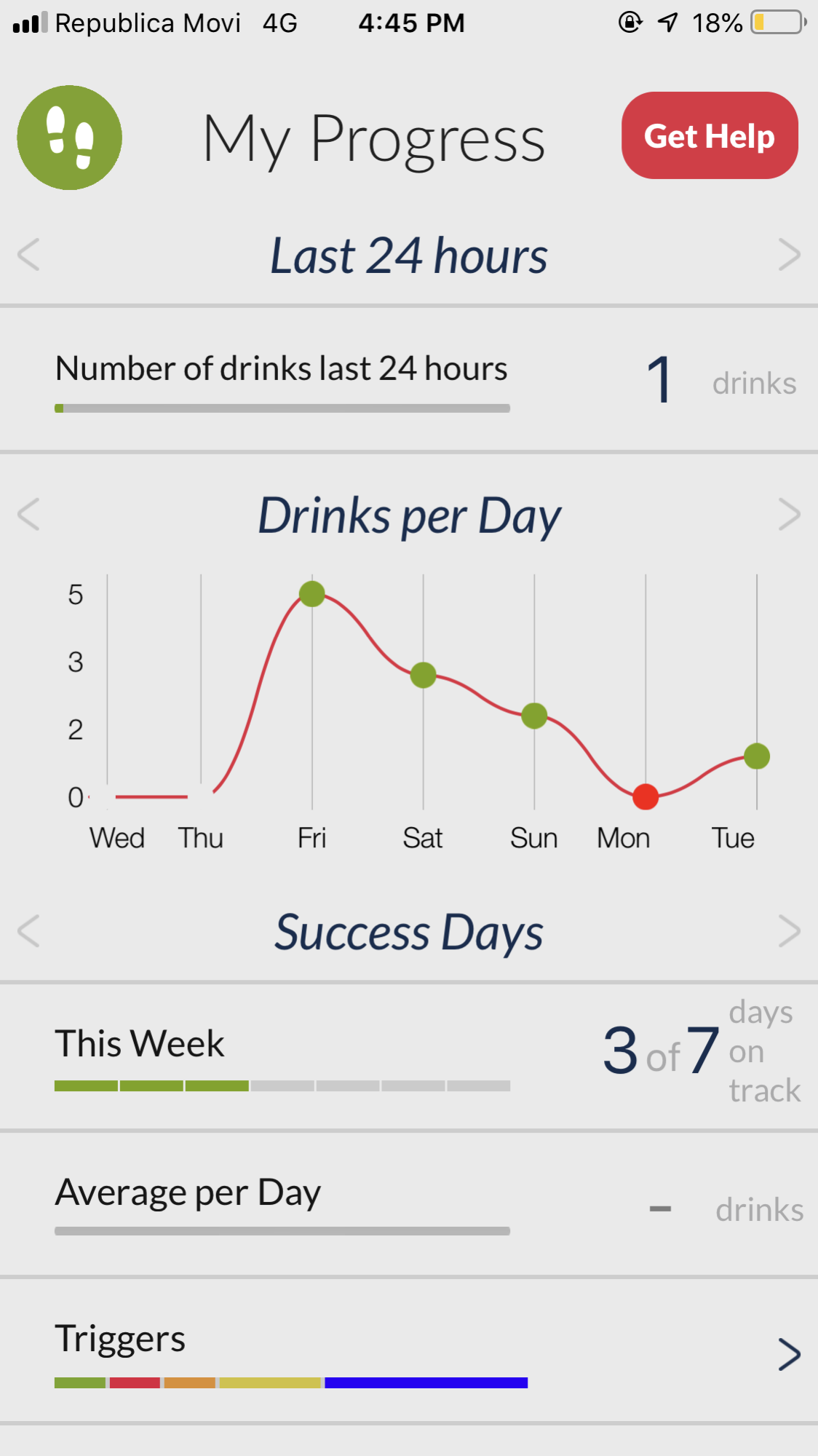Step Away project levels up to provide a personalized approach to reducing drinking
by Matt Jardin |

How many times have you joked about needing a drink during this era of COVID-19? For those with a history of alcohol abuse or addiction, it can be less of a punchline and more of a problem as the pandemic and resulting quarantines have made it easier to drink and more difficult to find face-to-face support. These issues only exacerbate other well-known barriers to sobriety, such as stigma and affordability.
Long before the pandemic brought to light a need for more robust sobriety management solutions, UAA Department of Psychology Professor Patrick Dulin, Ph.D., began working to address those barriers as part of the Step Away project. Step Away works to leverage technology as a confidential, inexpensive and always available tool to maintain sobriety.
“We can reach a lot more people with addiction help. Why not do it through the thing they carry with them all the time?” said Dulin. “Most people don’t get help with an alcohol problem because of a bunch of factors, the main ones being embarrassment about going to a provider and telling people they have a problem. Also, a lot of people can’t afford traditional in-person mental health therapy and can’t work it into their schedule, so we have opportunities to get around those barriers with smartphones.”
Originally started 10 years ago with funding from the National Institute of Alcohol Abuse and Alcoholism (NIAAA), Step Away began as an app during the Wild West early days of smartphone app development.

Step Away’s prototype app was a first of its kind. A study conducted in 2012 helped Dulin understand which features were helpful in reducing drinking and which were not. Interestingly, a feature in the prototype that was not rated highly by users was one that alerted them when they were in close proximity to a high-risk location for drinking, like their favorite bar. Many users found it too invasive so it was not carried forward into subsequent apps.
Last year, Dulin, in collaboration with co-investigator Dr. Diane King with UAA’s Center for Behavioral Health Research and Services (CBHRS), and UAA’s Institute of Social and Economic Research (ISER), began researching a chatbot version of Step Away that can explore new possibilities regarding engagement and personalization.
“Unless something grabs our attention through a notification, we tend not to engage with it,” said Dulin about what he feels are some important features that don’t get used as much as they should. “The chatbot reaches out in a conversation with people. It starts off asking a person about their drinking, when they drink, how much they drink, some of their reasons for drinking, and it helps them understand themselves and their relationship with alcohol. It then occasionally suggests new tools the user can try. My vision is one day the chatbot will be indistinguishable from having a conversation with a counselor.”
The app version of Step Away is a tough act to follow for the chatbot. During numerous clinical trials, participants decreased their alcohol consumption by over 50% while using the app. Equally impressive, Dulin notes, is that participants continued using the app for up to six months after clinical trials were over.
In fact, the app was so successful that a version of Step Away, redubbed Stand Down, is actively being researched by the Veterans Affairs department in Palo Alto, California with a view toward rolling it out to veterans. The app was also localized for use in New Zealand by the University of Auckland.
Looking ahead, Dulin and company are currently in the middle of a clinical trial, again funded by the NIAAA, where participants will use both the Step Away app and chatbot to determine if the conversation-based chatbot can provide enhanced effectiveness over the Step Away app.
“What’s key for me is figuring out how to engage people and keep them interested and activated,” said Dulin. “My sense is the bot might do that, but then again the app has so much background and has been modified based on user input from four different clinical trials. I have no idea which is going to come out on top, so it will be really interesting. The big idea is to help people to self-manage their alcohol problem, so either way is a win.”
Written by Matt Jardin, UAA Office of University Advancement
 "Step Away project levels up to provide a personalized approach to reducing drinking" is licensed under a Creative Commons Attribution-NonCommercial 4.0 International License.
"Step Away project levels up to provide a personalized approach to reducing drinking" is licensed under a Creative Commons Attribution-NonCommercial 4.0 International License.














